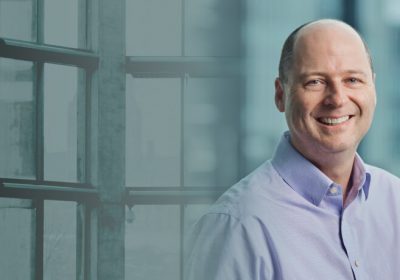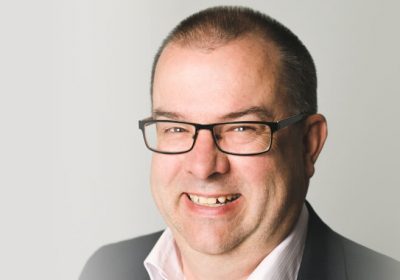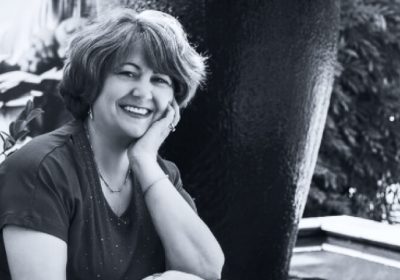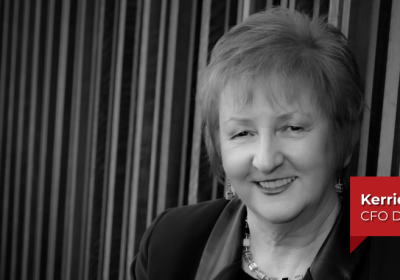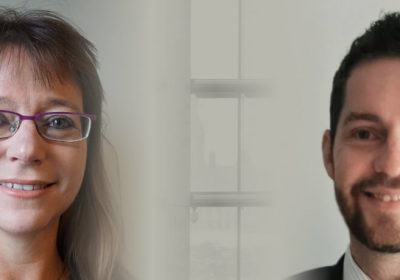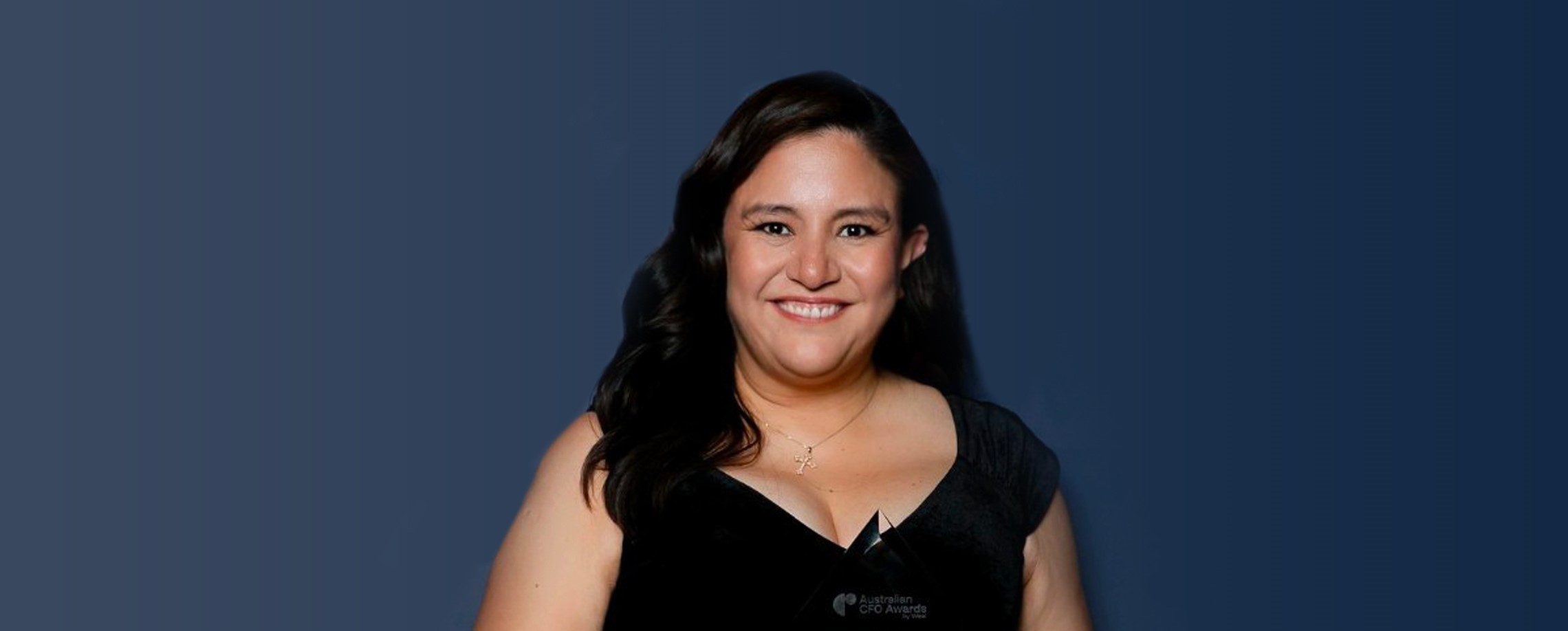
- Author: Jessica Mudditt
- Posted: March 1, 2023
CFO Spotlight: Karina Kouroutzoglou
CFO of the Year for SMEs Karina Kouroutzoglou explains why having the analytical skills of an economist set her up for success as the CFO of Advanced Building and Restoration – a company that works in an industry beset with market challenges.
Karina Kouroutzoglou is not the kind of person to wait for opportunities to come her way. Throughout her career, she has created opportunities and set her own pace.
Kouroutzoglou was born in Peru’s capital city of Lima and secured a job with Big Four firm Deloitte immediately after obtaining a degree in economics. She worked in the complex and highly specialized area of international tax, which she gravitated towards partly because of the global job prospects that came with it.
And sure enough, after just a year with Deloitte, Kouroutzoglou was transferred to Australia in 2007.
“They didn’t send me. I asked to be moved,” she says with a smile.
Kouroutzoglou was keen to explore the rest of the world. She says that growing up in overcrowded Lima had been tough, with acts of terrorism a constant worry. Her parents had divorced and her mother, an assistant accountant, was determined to provide for her only child, but faced the difficulties that came with being a single mother.
“I’ve had to work very hard to get where I am,” she says. “It has taken a lot of determination to pursue a career in the male-dominated industry of finance. My strength comes from my mother.”
Kouroutzoglou began a master’s degree in finance at Melbourne University and in 2008, she became a transfer pricing analyst at Deloitte.
Setting sights on a CFO role
In 2010 she switched to an energy start-up called Australian Gas, which was acquired by energy giant AGL. She worked on the integration process, which had an exciting degree of complexity. However, Kouroutzoglou realized that she wanted to become less specialized, and set her sights on becoming a CFO. In 2011 she took the first step by becoming a chartered accountant.
“I had exposure to many different CFO and tax advisers, and I realized that I wanted to be a trusted business partner, and to help organizations navigate different environments and become more profitable.”
In 2014, Kouroutzoglou joined the multinational fuel management systems manufacturer Gilbarco Veeder-Root and rose to being its financial planning and analysis (FP&A) director. She frequently worked long hours days and travelled internationally – to the United States, Singapore and New Zealand.
With two small children, a time came when she had to reassess her priorities and decided to join a smaller company to achieve a better work-life balance.
“You need to prioritize what you want in life,” says Kouroutzoglou. “Being a CFO for a big multinational company would not allow me to have enough time with my family. Working for a medium-sized company gives me the balance I need while still being a highly valued team member and making a significant impact.”
In late 2021, Kouroutzoglou became the CFO at Advanced Buildings and Restorations. Last year she won CFO of the Year in the SME category at an awards night supported by CFO Magazine. It was another ‘pinch yourself’ moment in her career.
“Looking back, when I was a little girl back in Peru, I never thought that one day I was going to be a CFO on the other side of the world,”
Bringing two worlds together
Kouroutzoglou believes that starting her career as an economist differentiates her among accountants.
“Economics gave me good analytical skills,” she says. “It helps me to not be too detail-orientated, but to look at the big picture and be strategic. I have a macro understanding of the marketplace, including the different competitors and players, and I look for trends. I can bring both worlds together.”
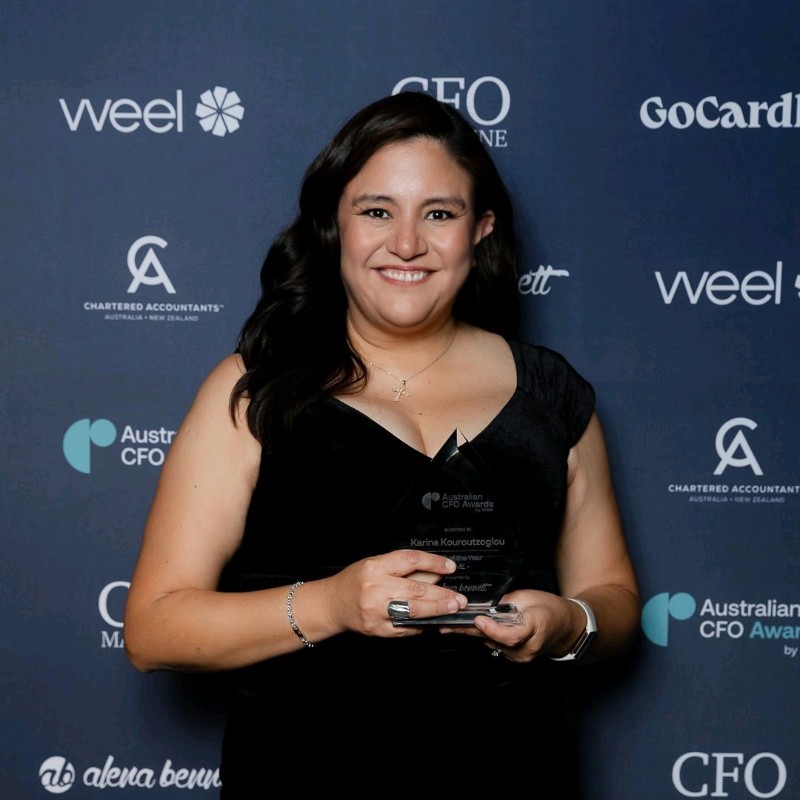
Karina Kouroutzoglou
This blended skillset is particularly useful in the highly competitive construction sector, which is facing multiple pressures. The housing boom comes at a time when there is an acute shortage of contractors due to the COVID-19 lockdowns bringing migration to a standstill, and from which it is yet to recover. The price of construction materials jumped by 16% last year.
Meanwhile, Advanced Buildings and Restorations must maintain its service level agreements or risk losing out to competitors.
Introducing KPIs for 150 staff
Kouroutzoglou joined the family-run company with a determination to set up processes that would make it more profitable and competitive. Eight months ago, she introduced KPIs for all of its 150 staff.
Needless to say, she encountered resistance – many preferred the lack of accountability over the pressure of chasing a target.
“It was a process of educating the team the end outcome. We hold quarterly town hall meetings when we share the financial results. This helps people to understand the impact of delaying work or not closing the jobs within a certain period of time. They could understand the margin and overheads.”
Each staff member had a career path developed in collaboration with human resources. This gave individuals the chance to see how their career would progress if they consistently met their KPIs. It proved to be a game changer.
“In the beginning the accounts receivable team were overwhelmed by the introduction of KPIs,” she says. “But I showed them that I wanted to support them in achieving their KPIs. They realized that good work was being measured and they became excited as they started hitting their targets. If you don’t know where you’re going, how do you know if you’re doing a good job?”
The discipline created by the KPIs has helped the company to develop accurate forecasts and to know whether an additional capital injection will be needed, or a project brought forward to achieve profitability.
A delicate balance with the board
Maintaining an excellent relationship with the three-person board of directors is one of Kouroutzoglou’s top priorities. It requires a high degree of emotional intelligence.
“I provide the board with enough information to be well-informed and satisfied, but not too much that they begin questioning whether a particular decision was the right one. My advice to other CFOs navigating this relationship is to adjust your style to suit the individual board members. Most will switch off if you give them too many details.”
Another tip is to anticipate the questions the board will likely have. If the company did not perform as well as expected during a given period, what are the plans to remedy it? Was it a bad quarter for the entire industry, or just your company?
Making every day count
Every day, Kouroutzoglou is fielding emails and phone calls and attending multiple meetings. Being able to prioritise is critical, as is the ability to say no to non-essential requests. Otherwise she would slip back into working incredibly long hours, which she believes is counterproductive to delivering high quality work.
“It’s a fast-paced environment and every day I must ask myself – what is the most important thing that I need to focus on? What is the most strategic and impactful goal?”
In a world where automation is beginning to reshape the entire finance profession, staying relevant means continuously seeking efficiencies.
“I believe in continuous improvement,” says Kouroutzoglou. “I am constantly driving my team to identify better processes every month. How can you make it quicker and smarter? This is exactly where automation can complement our work, and it is critical that we leverage it.”



